Dog Breed
West Highland White Terrier
Friendliness
Exercise Needs
Health Issues
Barking Tendencies
Grooming Needs
Shedding Level
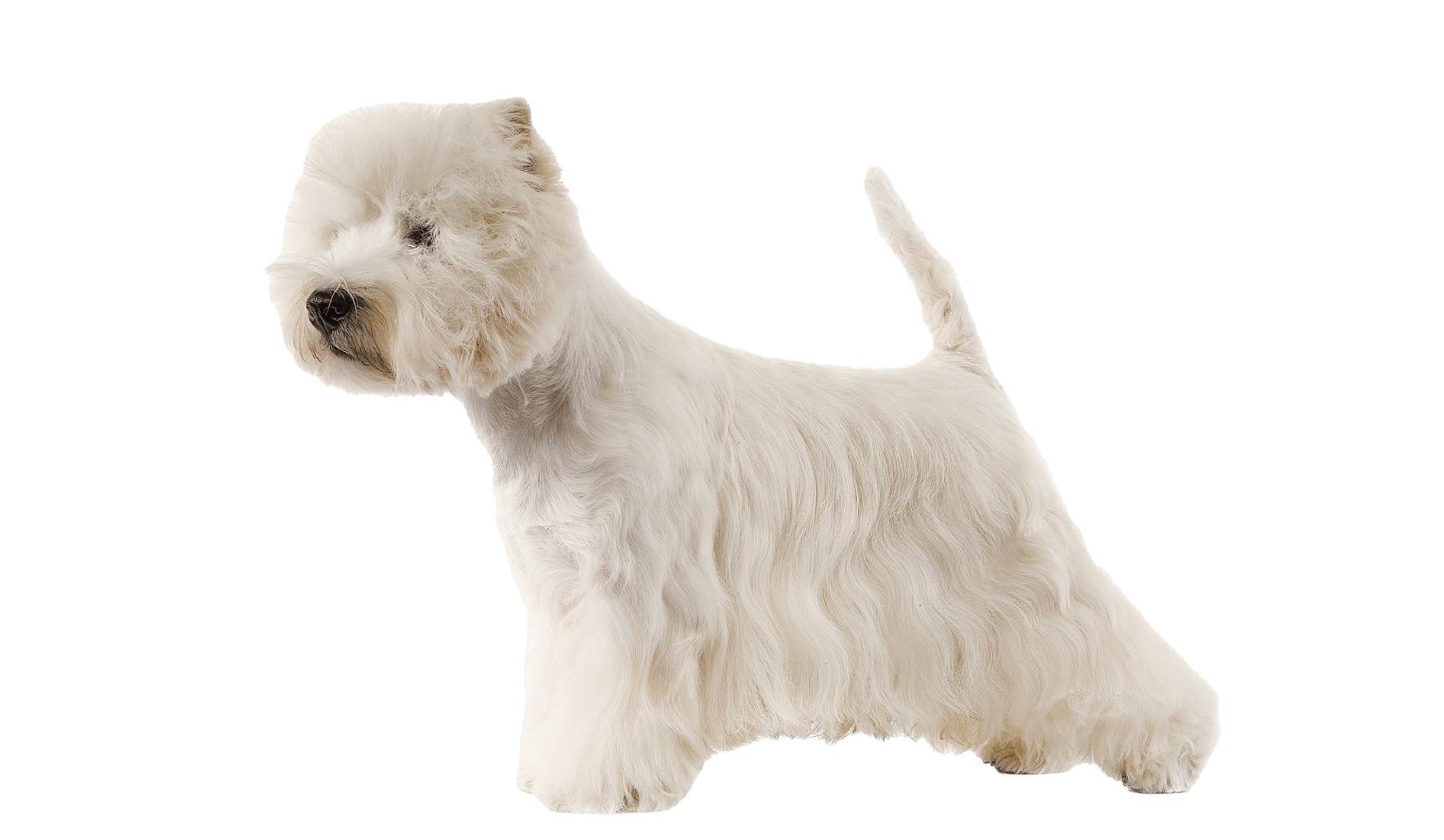

Energetic entertainer
meet the West Highland White Terrier (Westies to their family). These small, sturdy dogs are independent, feisty, confident and have heaps of energy to burn. But that doesn’t mean they won’t charm you. With their high intelligence and playfulness, Westies will entertain you for hours.
Westies are big barkers and will always let you know when someone is at the door. But once they’ve announced your visitor’s arrival, they’ll soon calm down and want to show off their tricks for their new friend. West Highland White Terriers can make great family pets, but they need to be properly trained and socialised from an early age.
Caring for your West Highland White Terrier
Nutrition
Choosing the right food
Every dog is unique. From the small, flat-faced Pug to the obesity-prone Labrador Retriever. ROYAL CANIN® Breed Health Nutrition is tailor-made to address the unique needs of pure breed dogs. These breed specific formulas benefit from the latest ROYAL CANIN® research on the selection of the best protein sources, unique nutrients and tailor-made kibbles.
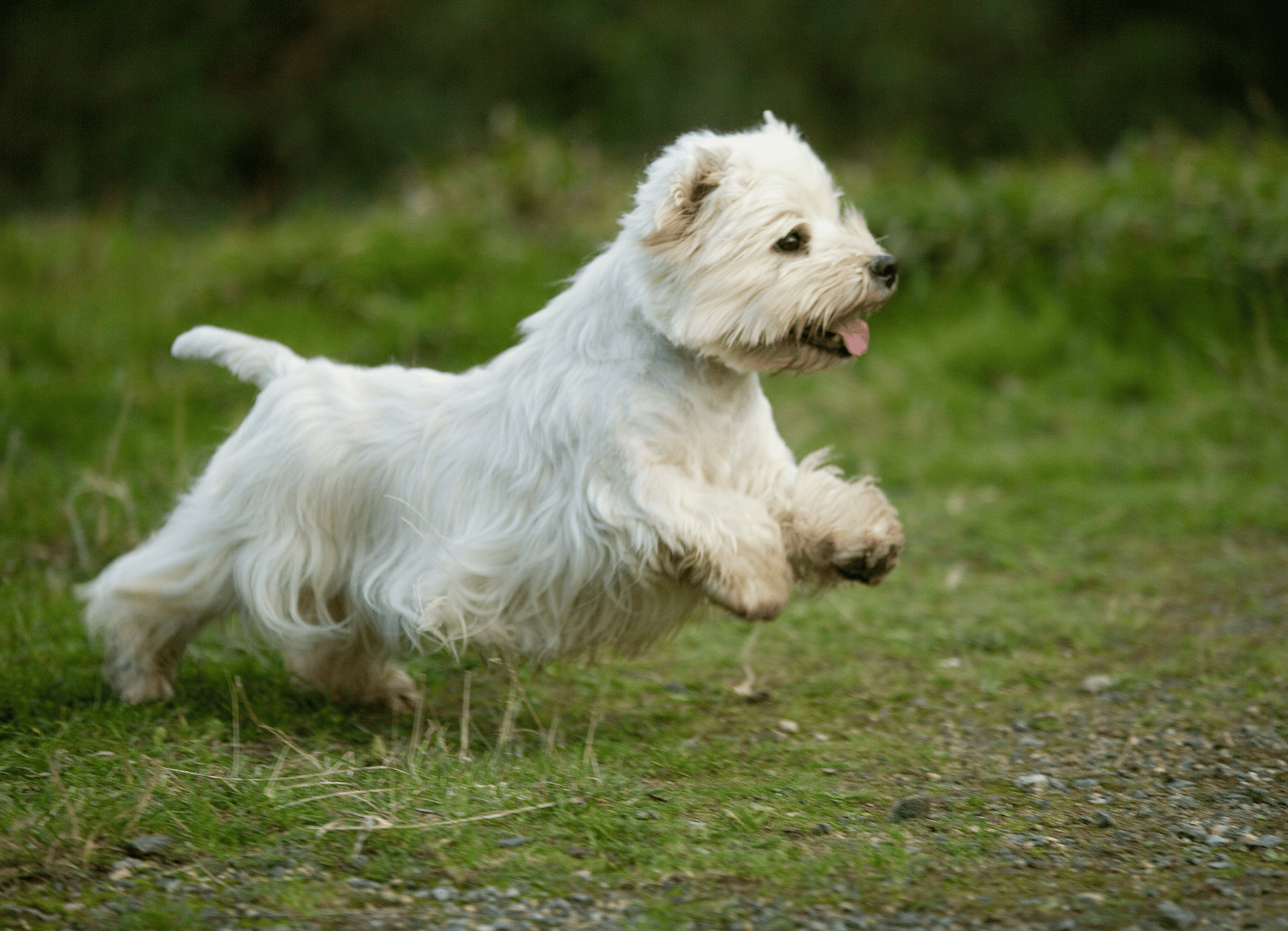
Exercising your dog
West Highland White Terriers love playing, romping, and walking. Even though Westies have a high energy level, they’re happy with a 30-minute walk a day, plus some play time. This can be off-lead but make sure they’re only let off lead in a secure, fully fenced area. Their instinct to chase is strong - they find it impossible to resist chasing a passing cat or critter!
When it comes to play time, fetch is a Westie’s dream game - be prepared though: they can play for hours.
Keeping your Westie physically and mentally stimulated is really important. Without enough outlets for their energy, they can turn disruptive - from digging up the garden to chasing next door’s cat.
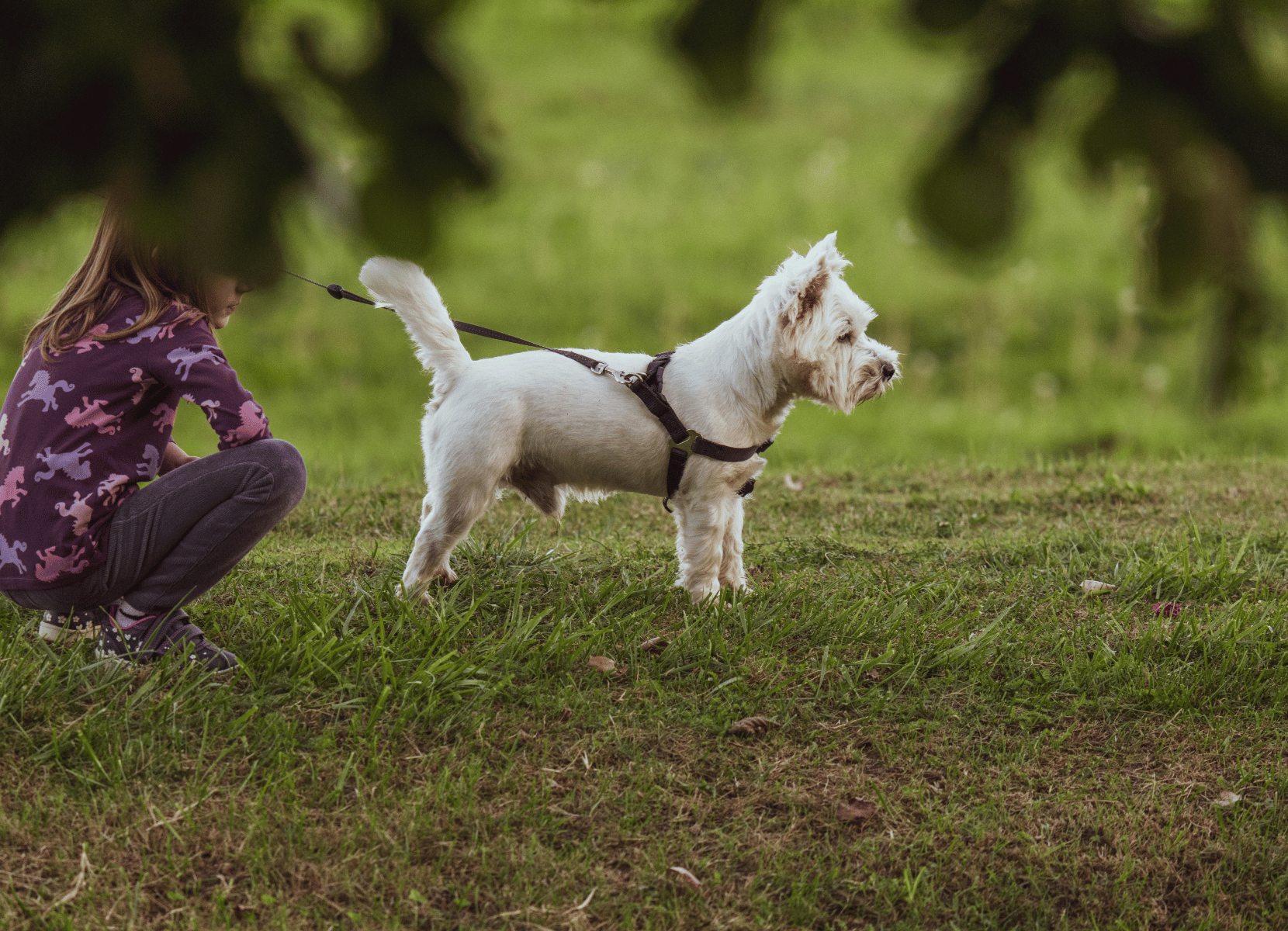
Training your West Highland White Terrier
Westies were bred to work alone, making them independent dogs. Although this can make training challenging, they respond well to patient, positive, consistent lessons and their intelligence helps them pick up things easily.
Choose your training location carefully. It should be a quiet, distraction-free area, like your securely fenced garden.
A Westie needs to be trained from when they’re a puppy and training should be done daily. Westies should also be socialised from a young age to help them become accepting of other dogs and people.
Puppy classes are a good idea, as well as leashed walks in your neighbourhood where they can meet other pup pals.
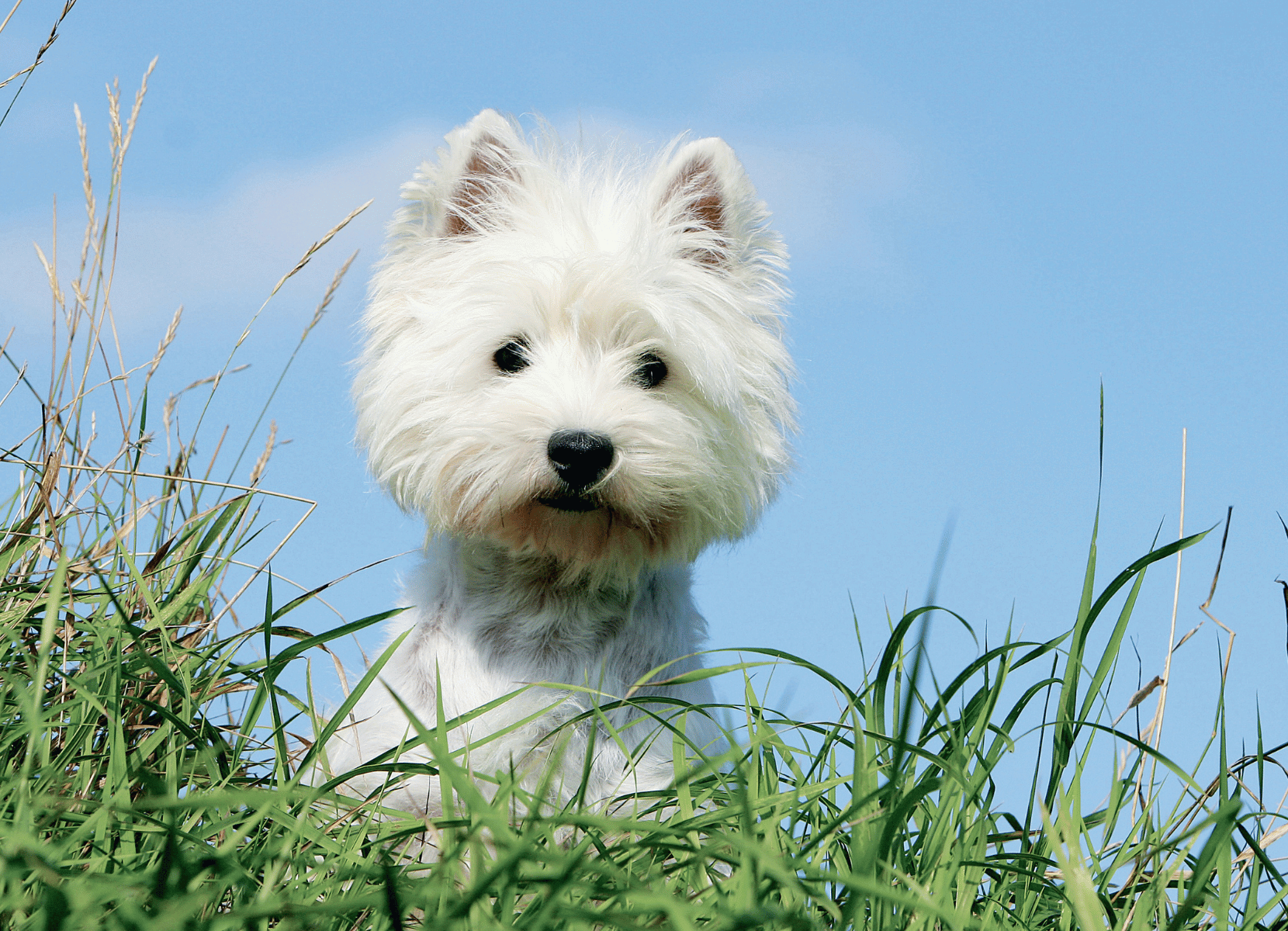
Your dog's health
By recognising health problems in West Highland White Terriers early you can seek advice and treatment from a veterinarian.
Reduce the risk of health problems by purchasing a puppy from a responsible breeder. Always inspect breeding facilities and breeding dogs, and never buy from a distant online seller.
Health Issues to watch out for:
Joint Problems
Legg-Calve-Perthes Disease
Skin Issues
Craniomandibular Osteopathy (CMO)
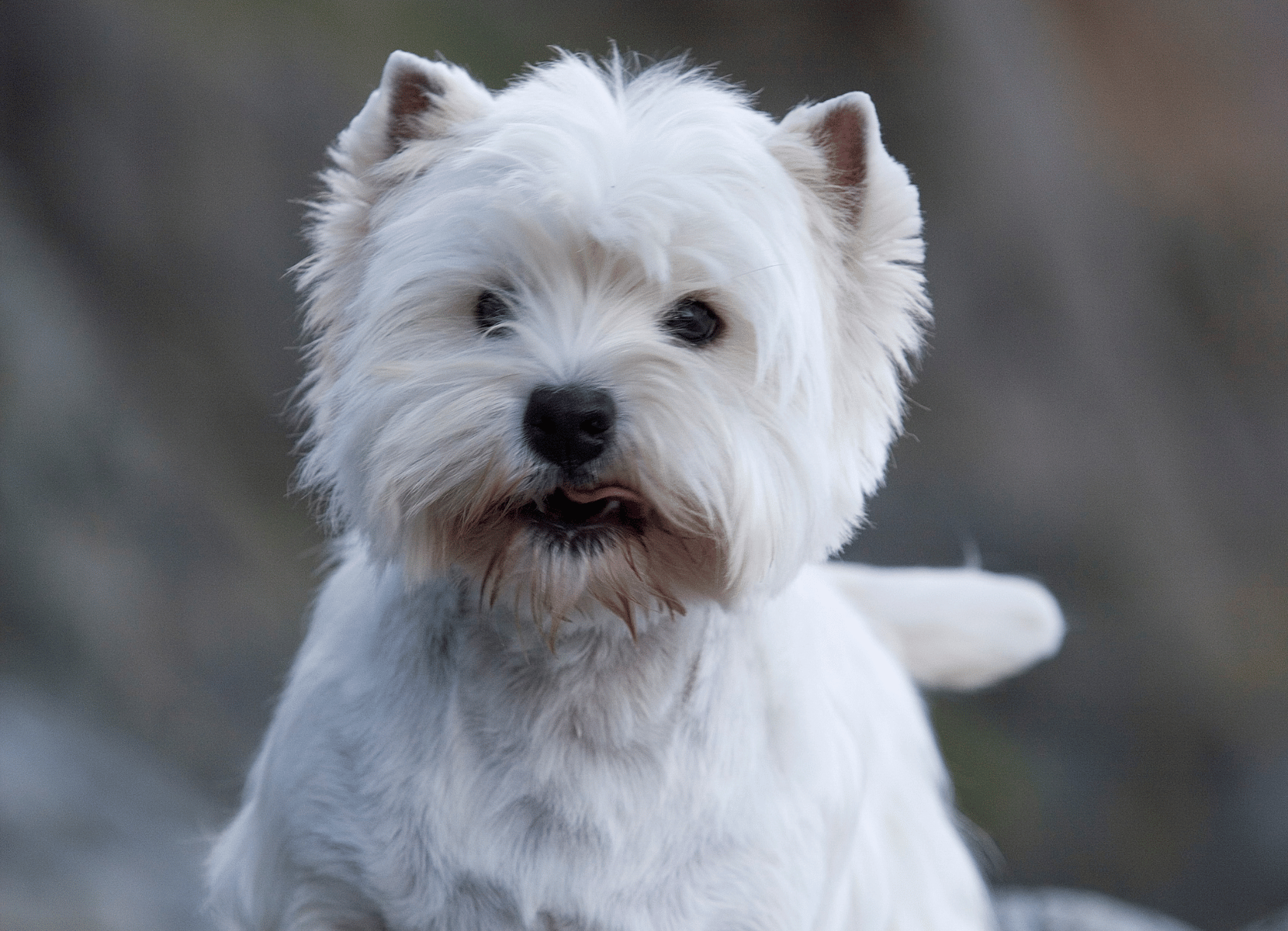
Grooming your dog
A Westie coat needs a lot of maintenance. If you’re after a show-ready pup (fluffy around the legs and face, shorter on the back and tail), you’ll need to hand strip them every month.
If you’re not bothered about keeping them in show condition, treat them to a professional groom every 4-6 weeks that will keep your Westie’s coat trimmed short.
Whichever style you go for, you will still need to give them a daily brush and comb to remove dead fur and stimulate new growth.
Baths should be kept to a minimum - bathe them too often and it can damage their naturally hard coat. Trim their nails every 2 weeks and brush their teeth every day.
Key characteristics of West Highland White Terriers
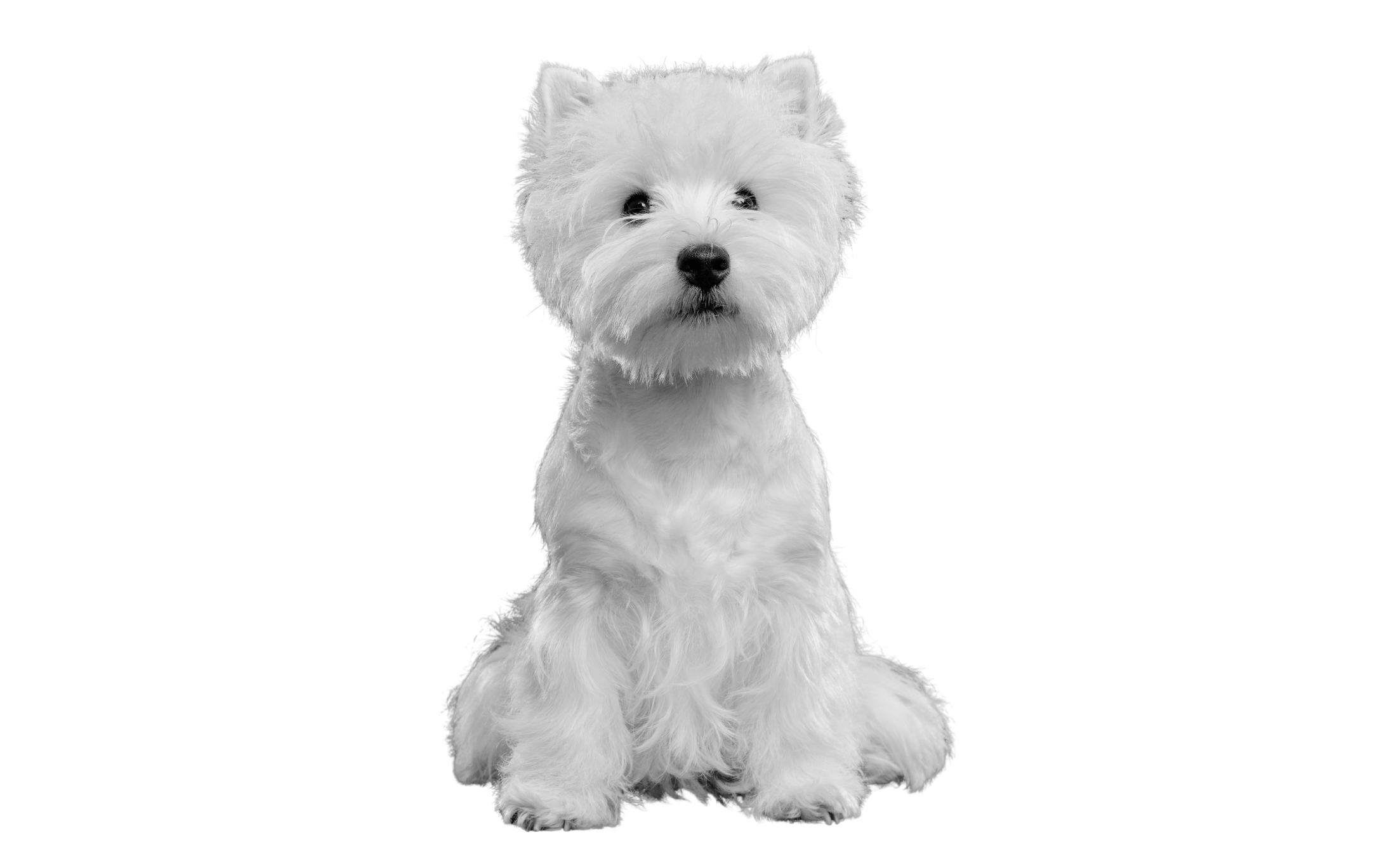
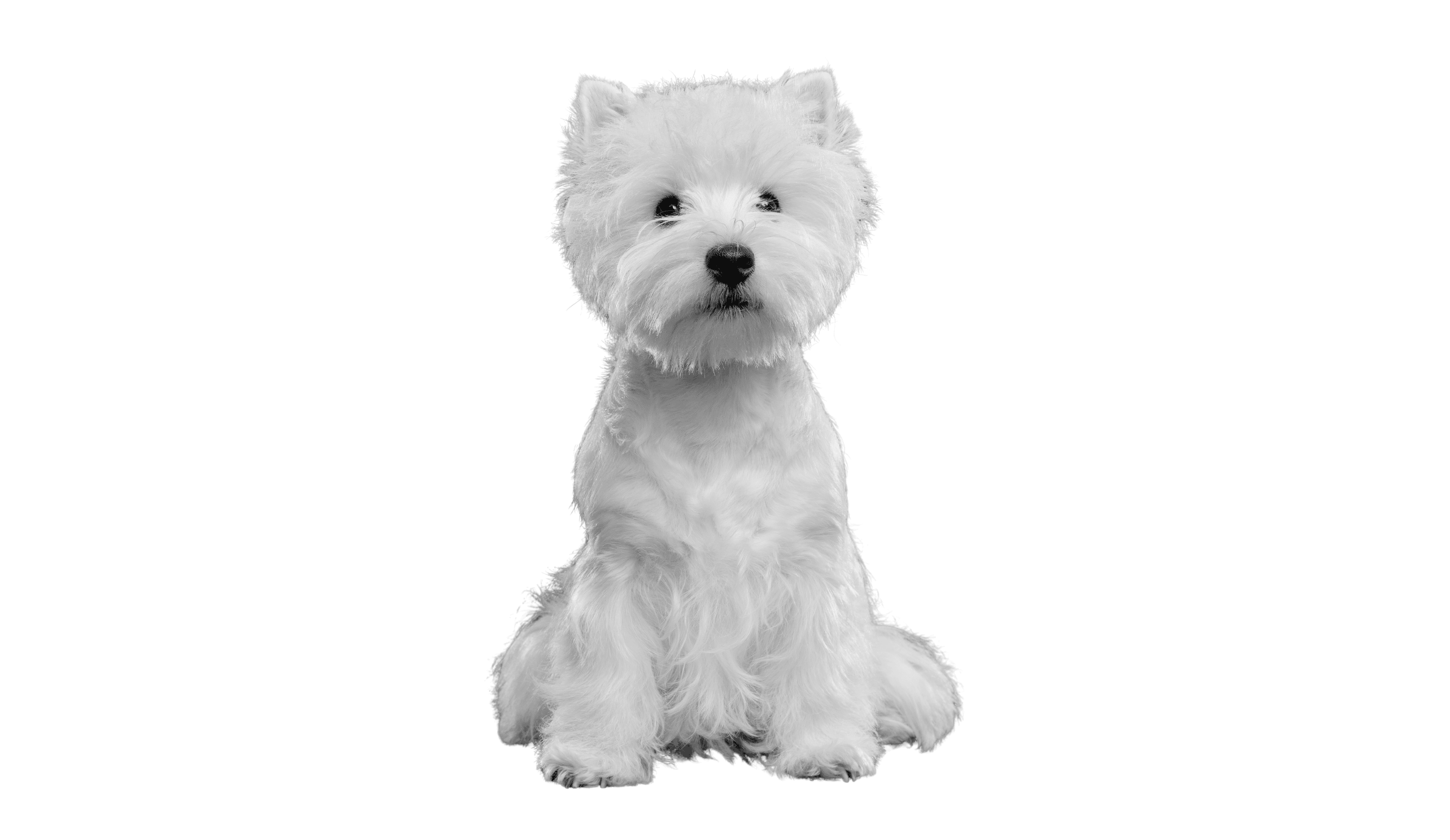
West Highland White Terrier FAQs
If you’re looking to learn more about the West Highland White Terrier, you’re in the right place. These FAQs cover lesser-known but important aspects of Westie care and lifestyle, from grooming to behaviour and everything in between.
Are Westies hypoallergenic dogs?
West Highland White Terriers are not truly hypoallergenic, but their coarse double coat sheds less than many breeds. This can make them more manageable for some allergy sufferers when paired with regular grooming and cleaning routines.
Can Westies be left alone during the day?
Westies are independent, but they thrive on companionship and stimulation. Leaving a Westie alone for long hours regularly can lead to separation anxiety and boredom-related behaviours. If you're working full time, consider doggy daycare or a midday dog walker.
Do Westies get along with cats or small pets?
Westies were bred to hunt rodents, so they have a strong prey drive. With early socialisation, they may get along with cats, but caution is advised around small animals like rabbits or guinea pigs.
To avoid wax buildup and infection, check your Westie’s ears weekly and clean them with a vet-approved solution if needed. Their ears are upright and get good airflow, but regular checks are still important.
What are some common behavioural challenges in Westies?
While loyal and clever, Westies can be headstrong and territorial. Barking, digging, and chasing are typical terrier traits that can be managed with positive reinforcement and consistent training.
These FAQs offer helpful insight into the everyday realities of living with a West Highland White Terrier. Whether you already share your home with a Westie or are planning to, understanding their grooming, temperament, and lifestyle needs is key to a happy and healthy life together.

